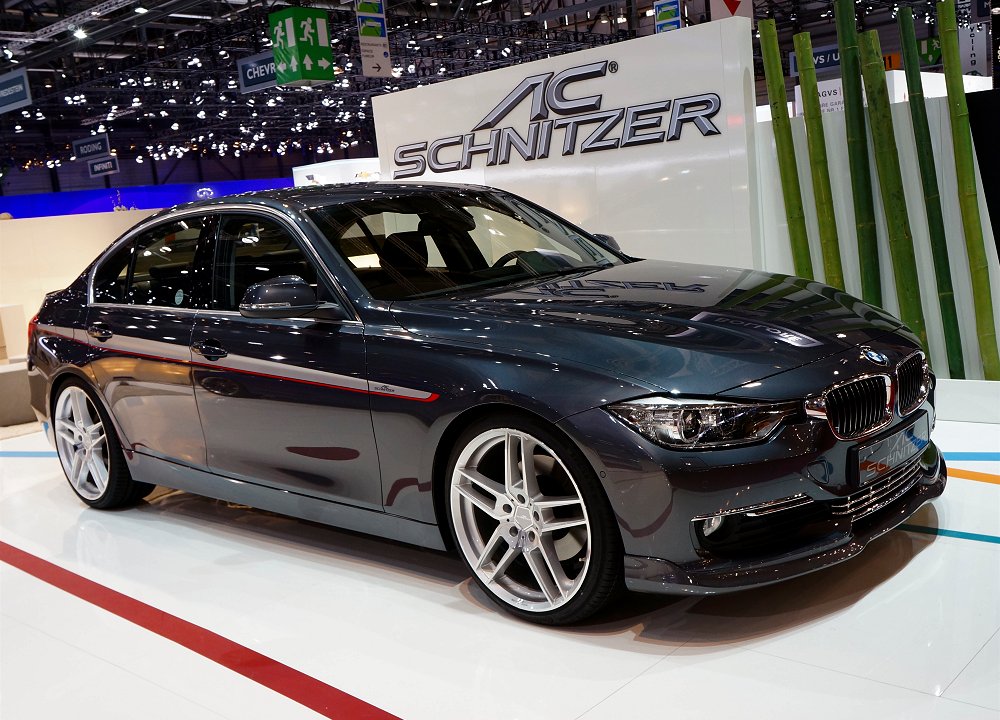In the realm of BMW tuning, few names command as much respect as AC Schnitzer. Their approach has always centered on enhancing performance while maintaining factory-level refinement. This philosophy crystallized perfectly in their interpretation of the F30 BMW 3 Series platform.
The 2012 ACS3 2.8 Turbo represents more than just a modified 328i — it’s a comprehensive reimagining of what a compact sports sedan can achieve. While the base car offered impressive performance, AC Schnitzer’s enhancements elevated it to a level that challenged much more expensive machinery.
Engineering That Speaks Through Performance
The heart of the ACS3 2.8 Turbo tells an impressive story. AC Schnitzer’s engineers took BMW’s capable 2.0-liter turbocharged inline-four and transformed it into a 295-horsepower powerhouse. The engine modifications go beyond simple power gains, delivering a broader torque curve that peaks at 302 lb-ft.
“The key to the ACS3’s character isn’t just raw power — it’s how that power is delivered,” explains Marcus Weber, lead powertrain engineer at AC Schnitzer’s development center. “We spent countless hours fine-tuning the ECU mapping to ensure linear power delivery across the entire rev range.”
Fact!
The ACS3 2.8 Turbo's engine produces 34% more power than the standard BMW 328i while maintaining factory reliability standards and emission compliance.
The technical sophistication extends beyond the engine bay. A bespoke exhaust system not only enhances flow characteristics but also delivers a sophisticated sound signature that distinguishes the car from its standard counterpart. The cooling system receives targeted upgrades to maintain optimal operating temperatures under demanding conditions.
Aerodynamic Evolution
AC Schnitzer’s expertise in aerodynamics shines through in every exterior modification. The front splitter, side skirts, and rear diffuser work in concert to enhance stability at high speeds while maintaining the F30’s elegant proportions.
Consider this testimonial from Sarah Chen, a professional driving instructor: “What impresses me most about the ACS3 is how it remains composed at speeds where standard cars start to feel nervous. The aerodynamic package isn’t just for show — you can feel it working.”
Let’s examine the key aerodynamic enhancements that contribute to the car’s stability:
- front splitter design optimized for reduced lift and improved cooling;
- side skirts that manage airflow along the vehicle’s flanks;
- rear diffuser that reduces turbulence and enhances stability;
- trunk-mounted spoiler precisely angled for optimal downforce;
- wheel arch extensions that accommodate wider performance tires.
The marriage of form and function extends to the wheels. AC Schnitzer’s lightweight forged alloys reduce unsprung mass while increasing mechanical grip through wider contact patches.
Performance Metrics That Matter
Raw numbers tell only part of the story, but they’re impressive nonetheless. The ACS3 2.8 Turbo reaches an electronically limited top speed of 155 mph, though the chassis and aerodynamic package are capable of more. Weight management was a key focus, with the car tipping the scales at just 3,197 pounds.
Notice!
While official 0-60 mph times weren't published, independent tests suggest times in the mid-4-second range — a significant improvement over the standard 328i.
Tom Harrison, former BMW factory test driver, notes: “The most remarkable aspect isn’t the straight-line speed — it’s the chassis balance. AC Schnitzer has managed to increase performance without compromising the F30’s inherent poise.”
The sport suspension package drops ride height by an optimal amount, improving both aesthetics and handling without sacrificing daily usability. Spring rates and damper settings strike an impressive balance between performance and comfort.
The Making of a Future Classic
More than a decade after its release, the ACS3 2.8 Turbo has carved out a unique position in BMW’s tuning history. It represents the sweet spot where modern technology meets traditional performance values.
The limited production numbers and comprehensive nature of the modifications have helped maintain strong residual values. Early examples with documented history and maintenance records are particularly sought after by collectors who appreciate the car’s significance.
Beyond the Spec Sheet
The ACS3 2.8 Turbo transcends its impressive specifications. It demonstrates how thoughtful engineering can enhance rather than overwhelm a car’s original character. The result is more than the sum of its parts — it’s a blueprint for intelligent performance tuning.
Each element works in harmony to create a driving experience that remains relevant and engaging years after its introduction. The car’s enduring appeal lies in its ability to deliver thrilling performance while maintaining the practicality and reliability expected from a premium sedan.
| Advantages | Disadvantages |
|---|---|
| Significant power increase while maintaining reliability | Higher initial cost compared to standard 328i |
| Comprehensive aerodynamic improvements | Limited production makes finding examples challenging |
| Balanced suspension setup suitable for daily use | Some parts availability concerns as the platform ages |
| Strong residual value retention | Higher maintenance costs than standard model |
| Exclusive nature and limited production | Requires specialized knowledge for servicing |
| Factory-quality fit and finish | Premium fuel requirement for optimal performance |
| Sophisticated engine management system | Insurance costs may be higher due to modifications |
The AC Schnitzer ACS3 2.8 Turbo stands as a testament to what’s possible when experienced tuners approach vehicle modification with respect for original engineering while pushing the boundaries of performance. Its blend of increased capability and daily usability continues to impress, making it a significant piece of BMW tuning history that’s likely to be celebrated for years to come.

